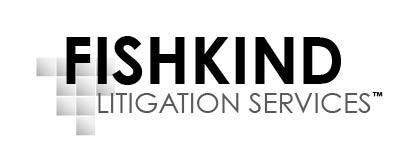The Impact Of Vaccine Passports On The Economy
The order also prohibits businesses from requiring proof of COVID-19 vaccinations or post transmission recovery from customers.
DeSantis says the order will protect individual freedom and patient privacy. But economic analyst Dr. Hank Fishkind, of Fishkind Litigation Services, tells WMFE’s Matthew Peddie he thinks it’s bad economic policy
Hank Fishkind: Well, optimal economic policy is based on the goal of maximizing the operation of the free market to in turn maximize the freedom of all the economic actors, including individuals and businesses. Now, we know that markets do not always behave perfectly. So we have government policies to regulate them. You know, market failures include things like monopolies or externalities, things we call spillover impacts, that result in unintended consequences for others. So for example, your freedom to use your property as you see fit is limited by the impact your decision may have on my freedom to use my property as I see fit. So we have policies prohibiting you from developing a toxic waste dump on your property without stringent regulation or prohibiting that use altogether.
Matthew Peddie: So, understanding that, how does this principle of spillover impact relate to the executive order banning vaccine passports or businesses requiring some form of COVID-19 documentation?
HF: Yeah, so let me give you an example. Consider the situation of cruise ships, which the governor was properly promoting, without the ability to know the COVID status of passengers definitively. And not just by, you know, taking the temperature or filling out a questionnaire, the ship’s operator cannot protect the health of passengers or crew. And we know that cruise ships are particularly vulnerable to COVID infection. So by this order, the governor turns economics upside down, Matt. The order would allow a decision by a prospective passenger not to be vaccinated or tested, to impose risk on all the other passengers and crew. A classic spillover effect.
MP: Well, more broadly then, how does the executive order impact the economy?
HF: If we can only safely have venues operating at, you know, say 50% capacity without COVID, free certification, compared to 100% of capacity with certification, it’s clear that the economy would benefit from allowing businesses to choose to either operate at full capacity without certification, or move to 100% capacity with certification. Finally, even when the state tells businesses, like they have, that businesses can operate at 100% capacity without COVID certifications, many businesses have chosen not to do so to protect their customers and staff while we still have high infection rates. So, allowing businesses to choose whether to allow certification or not is in the best interests of our economy, and the intrusion of the state therefore harms the economic activity.
MP: Alright, so that all makes sense. But what about the governor’s claim that the order protects privacy and promotes individual freedoms? it seems that the order would at least accomplish those goals, But you say not. Why is that?
HF: Well, first, certification that someone is COVID free doesn’t require any invasion of their privacy. A person can choose to either provide certifications directly by showing their vaccination card or test results, or they can use a third party to do so like we do with the TSA checkpoints at airports. If someone chooses not to do so that’s fine. That’s their choice. No one is forced to have a vaccination passport or to certify that they’re COVID free to anyone else, or any business if they don’t want to do that. But that is a choice. The order is not needed to do any of this. And concerning personal freedom, the scope of anyone’s personal freedom is circumscribed by the impact that may have on somebody else’s freedom of action. And so, you know, these spillover effects that can occur from unbridled use of personal freedom by action, you know, has effects on everybody and ignoring the spillover effects, the order doesn’t promote maximum personal freedom. In fact, it would reduce it.
MP: Hank Fishkind, thanks so much for your insights.
HF: Thank you, Matt.

